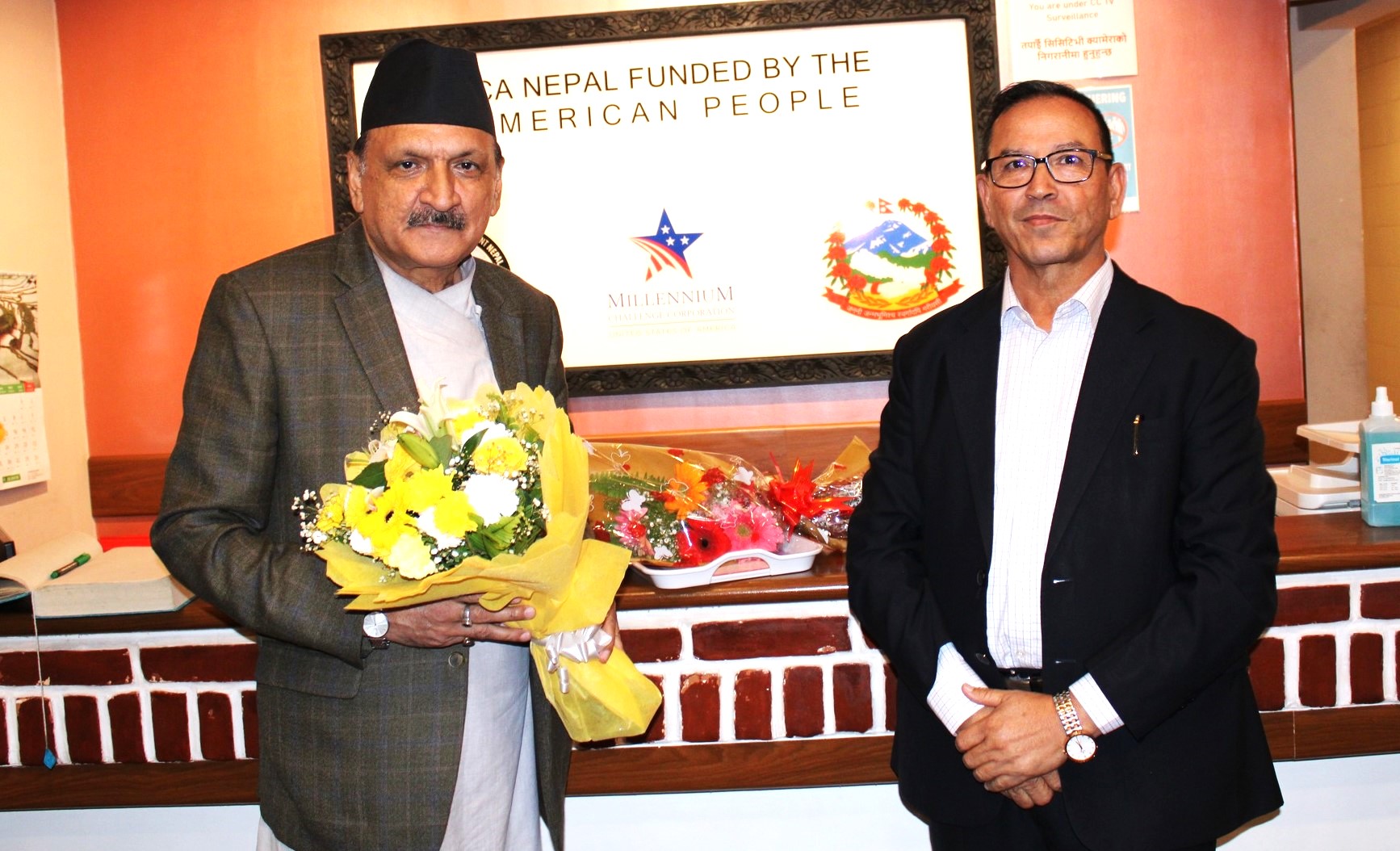Finance Minister Mahat asserts No further contributions to MCC projects amidst escalating costs

KATHMANDU: In response to mounting pressure to ensure timely project completion, Finance Minister Dr. Prakash Sharan Mahat has made it unequivocally clear that the government will not entertain additional contributions if the costs escalate in projects under the American aid Millennium Challenge Corporation (MCC).
During discussions with American officials and internal ministry affairs, Mahat iterated that the government has already fulfilled its obligations and will not commit further resources. Prior to the Entry into Force (EIF) of the project, the government had already increased contributions.
Originally, the MCC was slated to provide $500 million, with the Nepalese government committing $130 million. However, due to delays, the government decided to increase its contribution by $60.7 million, bringing the total to $190.7 million. Consequently, the project’s cost has surged to approximately $690.7 million.
In the event of proposals for additional costs exceeding estimates and tenders being canceled, Finance Minister Dr. Prakash Sharan Mahat has conveyed a resolute message to MCC officials that the government will not provide further contributions. A senior official from the Ministry of Finance confirmed, ‘Mahat has already made it clear that the government will not offer additional contributions.’
Experts foresee the possibility of increased costs in the MCC project due to proposals for additional expenses and tender cancellations within the same design. Changing the design requires navigating various processes, which could take at least a year to complete. However, restarting from the point of interruption may result in a higher-cost proposal.
Following the proposal for additional costs and the tender cancellation, Millennium Challenge Account-Nepal (MCA-Nepal), the implementing agency of the MCC grant in Nepal, canceled the tender for the construction of an electricity transmission line and road upgradation project under the project.
MCA-Nepal indicated that it was working on a plan, in coordination with technical experts, MCC, and the Government of Nepal, to ensure the success of upcoming procurement activities.
The relationship between the Ministry of Finance and MCA-Nepal has reportedly strained further after the tender cancellation incident. Finance Minister Mahat emphasized, ‘The government cannot increase additional contributions, but MCC can. Additionally, even if the design changes, the proposal is likely to return at a higher cost.’
While MCA-Nepal has announced plans to coordinate with technical experts, MCC, and the Government of Nepal for successful procurement, it has not progressed with a new process alomost four months after the tender’s cancellation. Finance ministry officials suggest a deteriorating relationship between the Ministry of Finance and MCA-Nepal following the incident.
In essence, the five-year timeline for project completion under the MCC began on August 30 this year. The Millennium Challenge Account Nepal (MCA-Nepal) initiated the Entry into Force (EIF) phase on August 30, marking the beginning of the five-year timeline for the program.
Despite taking approximately four years from the signing of the agreement related to the American grant, concerns arise about fund availability due to the prolonged implementation process following the announcement by the International Economic Cooperation and Development Fund (IECDF).
With the IECDF announcement, the procedural process is anticipated to continue, raising uncertainties about the funds to be provided by the United States to Nepal.












Facebook Comment